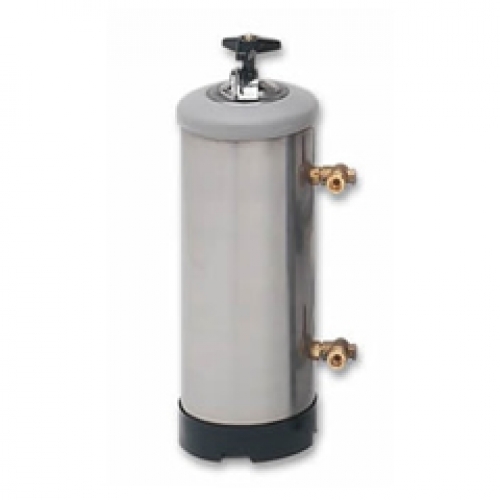3 min read
132 Views
Editorial Staff
Benefits of Using Water Softeners
In several countries in Europe, many homes depend on hard water to meet their domestic needs. However, hard water contains [...]
I
n several countries in Europe, many homes depend on hard water to meet their domestic needs. However, hard water contains dissolved minerals such as iron, calcium, and other impurities that have negative impact on users. While many families continue to use it in its raw form, hard water can cause a number of problems related to appliances and users’ health.
To reduce the effects of hard water, many people use water softeners. Water softening is a process whereby users apply special industrial products to reduce or eliminate the dissolved minerals in water, making it softer and easier to use. By diluting dissolved mineral concentrations, users can derive several benefits from the softeners. The following are some of the prime advantages of using water softeners.
• They make cleaning easier. Hard water with dissolved minerals is difficult to use and leaves spots and streaks in laundry or appliances. When the water is treated, it becomes soft and is able to remove soap residues thoroughly, leaving laundry and appliances cleaner with less effort. With soft water, users are not exposed to health risk due to a lot of rubbing during handwashing. Besides, with less soap scum and films, bathtubs and showers become easy to maintain.
• Using water softeners can extend life of appliances. When minerals and residues build on various appliances such as sinks, showerheads, and bathtubs, they reduce their efficiency and performance. That eventually shortens life of appliances as they get clogged and become non-functional. By applying water softeners, washing machines, dishwashers, and other water-using appliances are likely to stay longer. Longer appliance life is beneficial even to the environment, as it reduces waste and conserves the raw materials used in production process.
• Using softeners leads to faster water heating. Research has revealed that water heaters take less time to heat soft water than hard water. Faster heating means the appliance consumes less energy, which eventually reduces their utility costs. In fact, studies conducted by Virginia Cooperative Extension reveal that water softeners improve heating efficiency by 22% in electric water heaters and by 29% in gas-powered water heaters.
• Using softeners leads to a cleaner plumbing system. Water softeners have the power to remove the scum and impurities left on appliances by hard water. In the end, plumbing fixtures and pipes will remain clean and efficient with soft water. With no corrosion and clogging that may lower efficiency of appliances, users are likely to have cleaner plumbing system that lasts longer and helps them reduce utility costs.
While hard water is safe to use even in its raw form, it is advisable to apply recommended softeners to make it soft. In view of the above points, it is clear that advantages of using water softeners far outweigh their downsides. However, users need to do their own research and buy the products only from certified suppliers with genuine products that may not put any harm on the environment and health of the users.






